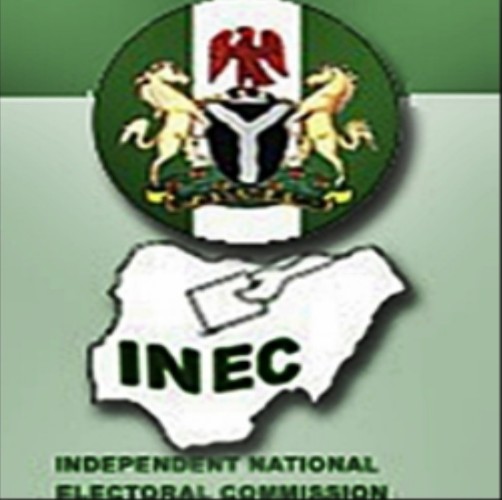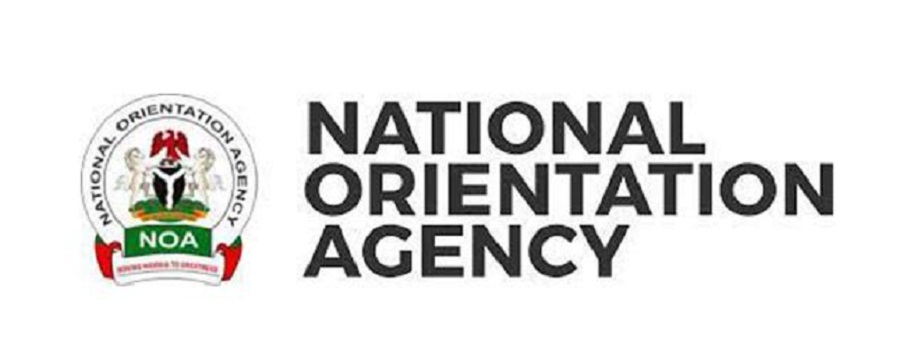News
INEC Harps on the Role of ICT in Elections

Prof. Mahmood Yakubu, President, ECOWAS Network of Electoral Commissions (ECONEC), said in spite of the challenges of deploying technology in electoral processes, its benefits had remained enormous.
He stated this yesterday at the opening of a three-day International Conference of Election Management Bodies (EMBs) in West and Southern African countries in Abuja.
The conference has “Opportunities and Challenges in the Use of Technology: Experiences from West and Southern Africa’’ as theme.
Yakubu, who is also the Chairman, Independent National Electoral Commission (INEC), said that the deployment of technology had encouraged and empowered citizens, more than before, to participate in the electoral process.
According to him, technology has helped citizens to organise, mobilise and protect their mandates using various social media platforms to track result transmission and undertake Parallel Vote Tabulation (PVT).
The ECONEC president said that given the deficit of infrastructure and expertise in many West and Southern Africa countries, and the regularity of elections conducted, concerns had been raised about cost, choice and effectiveness of technology.
He said that given the high stakes involved in conducting elections in developing countries, electoral commissions must understandably be worried about the twin issues of communication and security.
“In addition, we have to contend with the disturbing but rapidly increasing incidence of election-meddling through the deployment of counter-technology on a global scale by state and non-state actors.
“Nevertheless, technology has come to stay and its benefits are immense.
“`While it is true that all countries participating in this conference have deployed technology in one form or the other to improve on the electoral process, the outcome varies from one country to another.
“However, with this coming together of election managers and experts to share experience, we shall be better prepared in making the choice of the appropriate and cost effective technology that increase the public confidence in the electoral process.
“This will also help us further protect the sanctity and integrity of the ballot,’’ he said.
In a goodwill message, Notemba Tjipeuja, Executive Committee Chairperson, Election Commission Forum, Southern African Development Community (ECF-SADC), said that the introduction of ICT in the electoral process had continued to attract interest among stakeholders.
Tjipeuja, also the Chairperson, Electoral Commission of Namibia (ECN), the first country in Africa to use electronic voting machine, said that one of the benefits of technology was automatic and error-free counting.
She listed other benefits of the introduction of electronic voting machine as replacement of the ballot paper and ballot boxes.
Some others, according to her, include the elimination of spoilt ballots, minimising of human error, speeding up the voting process, securing of votes on control units and maintaining the secrecy of the ballot.
Tjipeuja said “today, most EMBs around the world use new technologies such as computer-based software and more complex technology in electoral processes.
“While we all agree that as EMBs, we cannot ignore technology, we have to at the same time, be mindful of the cost associated with the management of elections.
“This is one of the challenges for governments and all EMBs.
“We are mindful of the need for cost-saving measures by all EMBs to curb the ever-increasing cost of elections, the need to carefully manage the use of ICT and the need to sustain the integrity of elections,’’ she added.
Delegates from 30 countries in ECOWAS sub-region are attending the conference.
News
NOA Uncovers Fraud by Banks, Universities in Students Loan Scheme

National Orientation Agency (NOA) has revealed that an investigation by its Community Orientation and Mobilisation Officers (COMO) uncovered unethical practices by some tertiary institutions, in collaboration with certain banks, that are depriving students of their rightful access to the Federal Government Student Loan Fund.

Paul Odenyi, deputy director of Communications and Media, in a statement Sunday, disclosed that several universities and financial institutions have been found engaging in fraudulent activities that prevent students from receiving the loans allocated to them.
Mallam Lanre Issa-Onilu, director general, NOA, shared these troubling findings following a high-level meeting with Mr. Akintunde Sawyerr, managing director, Nigeria Education Loan Fund (NELFUND), over the weekend.
According to NOA, preliminary reports led to an urgent intervention from NELFUND after it was discovered that some university officials had deliberately withheld critical details about student loan disbursements.
Further feedback from NOA confirmed that certain institutions, in collusion with banks, have intentionally delayed payments to approved applicants for dubious financial gain.
Additionally, some universities do not acknowledge the disbursements made by NELFUND to students.
Sawyerr confirmed that certain institutions have withheld information about loan payments issued in students’ names while still demanding tuition fees from them.
He warned that NELFUND is ready to take legal action against institutions found guilty of engaging in fraudulent practices.
He stated, “Recent findings by NELFUND have shown that some institutions have received student loan disbursements directly into their accounts yet neglect to inform the affected students or record the payments in their financial records, leading to unnecessary confusion.
“Withholding critical financial information from students is not only unethical but also a breach of the principles on which NELFUND was founded.
“We are prepared to take legal action against any institution engaged in such deceptive practices.”
The investigation revealed that in some instances, universities continued to demand full tuition payments from students, despite having already received the loan funds intended to cover those fees.
According to the NOA, this constitutes a gross violation of student rights and a betrayal of public trust.
Issa-Onilu, therefore, issued a strong warning to the institutions and collaborating financial institutions, demanding an immediate end to these actions.
He also directed all NOA state directorates to intensify feedback collection from students nationwide to aid the Federal Government in identifying and penalising the erring parties.
The NOA emphasised its commitment to transparency, accountability, and ensuring that students benefit fully from the government’s intervention in education financing.
The statement added that the investigation remains ongoing, and further actions are expected in the coming weeks.
General News
Nigeria Records $6.83Bn Balance of Payments Surplus in 2024 Amid Economic Reforms

Central Bank of Nigeria (CBN) has announced a remarkable $6.83 billion balance of payments surplus for 2024, marking a decisive turnaround from deficits of $3.34 billion in 2023 and $3.32 billion in 2022.

This achievement reflects the impact of sweeping macroeconomic reforms, stronger trade dynamics, and renewed investor confidence in the nation’s economic direction.
Speaking at the 36th Enugu International Trade Fair, Acting Director of Corporate Communications, Mrs. Hakama Sidi Ali, highlighted the CBN’s commitment to addressing economic challenges and fostering productivity, particularly for SMEs.
She emphasized the importance of robust financial systems, foreign exchange stability, and collaboration between monetary and fiscal authorities in achieving industrial development and global recognition.
The President of the Enugu Chamber of Commerce, Sir Odeiga Jideonwo, commended the CBN’s efforts but expressed concerns over the recent hike in interest rates, cautioning that it could hinder access to credit for businesses.
This surplus signals a positive trajectory for Nigeria’s economy, benefiting investors, businesses, and citizens alike.
News
Senate Committee Partners with Kuda Bank to Tackle Compliance Crisis as Nigeria Loses ₦3.4 Trillion

Over ₦3.4 trillion in financial infractions were uncovered across federal Ministries, Departments, and Agencies (MDAs) in 2021, according to the Auditor General’s report — a staggering figure that highlights Nigeria’s deepening compliance crisis and the urgent need for stronger oversight in public institutions.

In response, the Senate Committee on Legislative Compliance is hosting a high-level workshop to address the root causes of weak oversight and institutional gaps. The two-day event, with the theme ‘Consolidating Strategies for Strengthening Legislative Compliance by MDAs’, will take place on April 15 and 16, 2025 at NAF Suites, Abuja, bringing together lawmakers, regulators, and over two hundred representatives from federal MDAs.
Kuda Microfinance Bank is co-sponsoring the workshop as part of its commitment to supporting responsible innovation, governance, and regulatory alignment in Nigeria’s financial ecosystem.
Rasaq Kadri, Kuda’s Head of Compliance, will deliver a keynote address on the second day of the event, highlighting the efforts of Nigeria’s fintechs to promote inclusion and financial literacy without compromising on compliance best practices.
“When public funds go unaccounted for, it doesn’t just damage government credibility, it affects the entire financial ecosystem, including fintechs,” said Kadri. “We can’t build trust-driven products in a trust-deficient environment. Every time compliance is treated as a box-ticking exercise, we miss the chance to build something that lasts. Fintechs have the tools and perspective to support better governance, but more importantly, we have a responsibility to be part of the solution.”
As a sponsor, Kuda will take the workshop to engage directly with key stakeholders in Nigeria’s regulatory and public service ecosystem.
Plenary sessions will be chaired by the Honourable Attorney General of the Federation, Lateef Fagbemi SAN, and the Honourable Minister of Finance, Wale Edun. Conversations will focus on closing compliance gaps, strengthening institutional transparency, and promoting cross-sector collaboration.
The Senate Committee on Legislative Compliance Workshop is a unique platform for dialogue, knowledge-sharing, and collaborative action.

 E-Business2 days ago
E-Business2 days agoNITDA Warns Against Fake Google Play Store

 General News2 days ago
General News2 days agoLagos Commences Integration of NIN with State Single Social Register

 News2 days ago
News2 days agoNOA Uncovers Fraud by Banks, Universities in Students Loan Scheme

 E-Financial2 days ago
E-Financial2 days agoUBA Redefines Banking with Next-Gen PoS Terminals and Revamped MONI App

 E-Financial2 days ago
E-Financial2 days agoSEC Bans Unregistered Digital Asset Exchanges, Online Forex Platforms

 E-Financial2 days ago
E-Financial2 days agoAfrica Loses $88.6Bn Yearly to Corruption- ECOWAS

 E-Financial2 days ago
E-Financial2 days agoNIBSS Heads to Court to Recover N4Bn Lost due to System Glitch

 General News2 days ago
General News2 days agoNigeria Records $6.83Bn Balance of Payments Surplus in 2024 Amid Economic Reforms

























